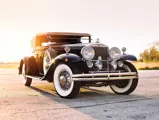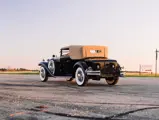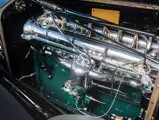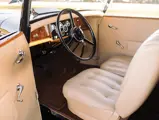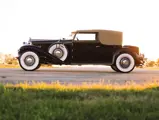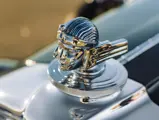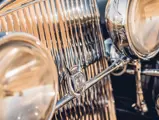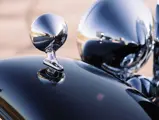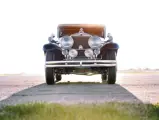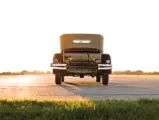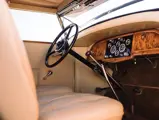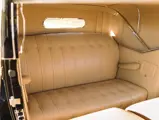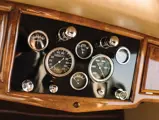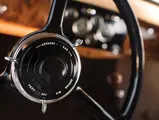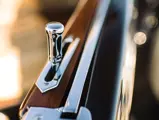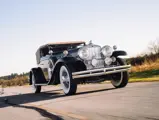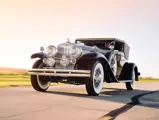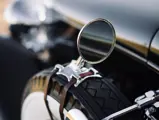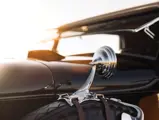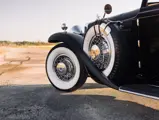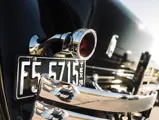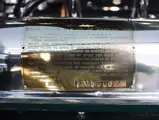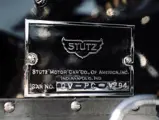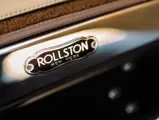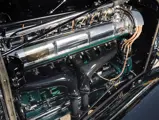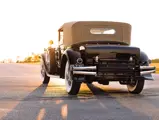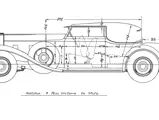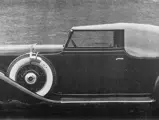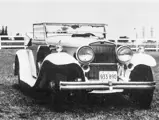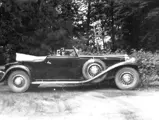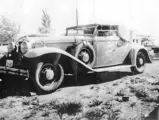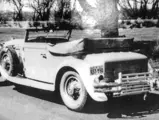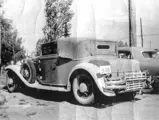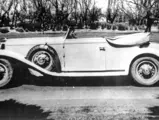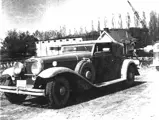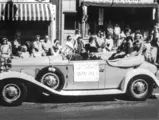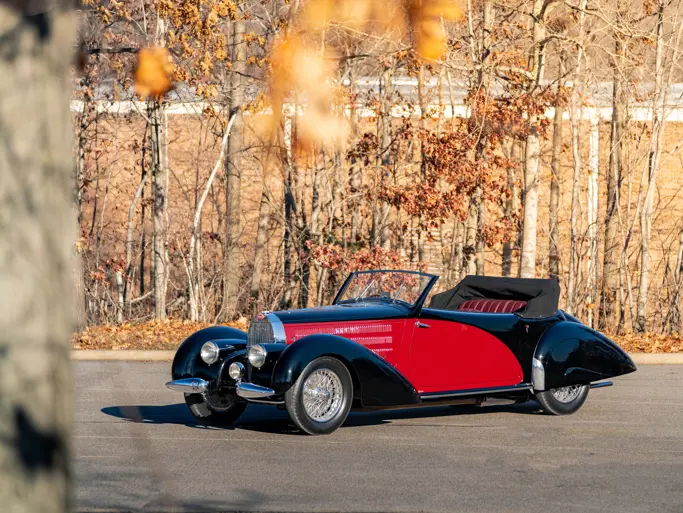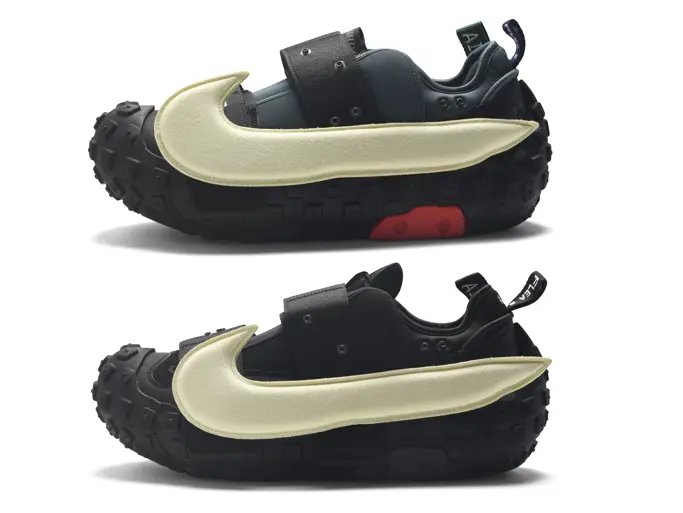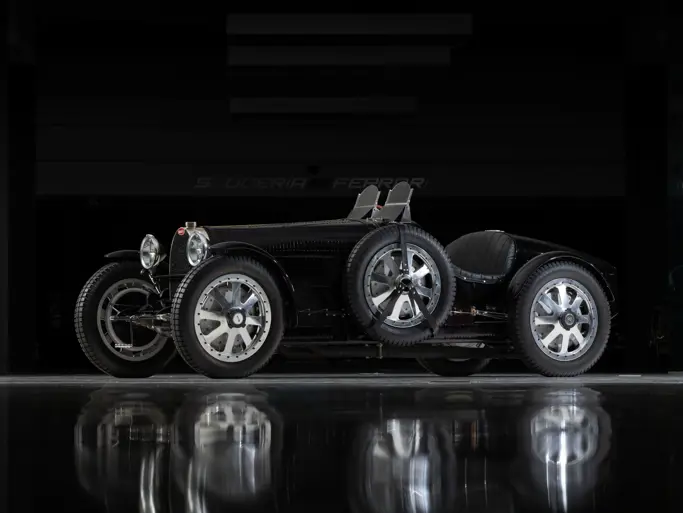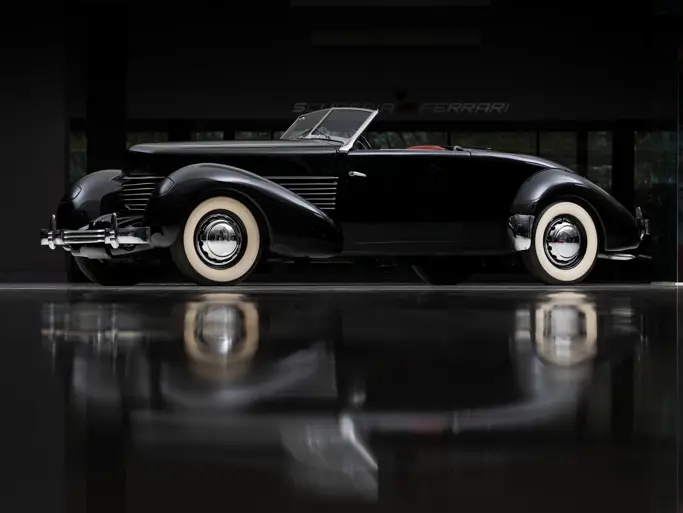Amelia Island 2016
1931 Stutz DV-32 Convertible Victoria by Rollston
{{lr.item.text}}
$1,100,000 USD | Sold
 | Amelia Island, Florida
| Amelia Island, Florida
{{internetCurrentBid}}
{{internetTimeLeft}}

- Offered from the collection of marque specialist Richard Mitchell
- The first of five examples built to this design on the DV-32 Stutz chassis
- Known ownership history since new
- Exquisite restoration; multiple Best of Show and Best in Class victories
- A superior Stutz in every regard
Body Style 159. 156 bhp, 322.1 cu. in. DOHC inline eight-cylinder engine, four-speed manual transmission, solid front and live rear axles with semi-elliptic leaf-spring suspension, and four-wheel vacuum-assisted hydraulic drum brakes. Wheelbase: 145 in.
THE ROLLSTON STUTZ
Many of the finest bespoke creations on Stutz chassis were produced by the Rollston Company of New York City, who, for three decades, was Manhattan’s most prestigious coachbuilder. Rollston produced an astonishingly diverse portfolio of work, encompassing everything from fleet roadsters to massive town cars, which were all distinguished by exceptional build quality and priced accordingly.
Rollston’s design number 159, a convertible Victoria for the Stutz chassis, was drawn on December 30, 1930, as the rest of New York City likely prepared for the New Year, as is noted in a letter on file from Rollston heir Bill Creteur. This design had been originally developed in Europe in the early 1920s and then popularized in the U.S. by Waterhouse and, later, Rollston, who continued producing it after Waterhouse folded. The style was distinguished by a formal top with no rear quarter windows, providing a sheltered perch for rear-seat passengers when the top was raised. When lowered, however, the top would lie flat into a scooped “notch” behind the doors, giving the Rollston convertible Victoria a smooth, clean contour across the beltline. Long doors and a lowered windscreen served to accentuate the length and elegance of the design.
According to Creteur’s letter, six convertible Victorias were eventually built, with this car, body number 507-A, believed to have been the first Rollston body built on the ultimate DV-32 chassis, with its double-overhead-cam engine with hemispherical combustion chambers suitable for 156 horsepower.
CHASSIS NUMBER DV-PC-1294
Remarkably, Bill Creteur supplied a copy of this car’s Rollston build sheet, included on file, which notes that it was originally to be finished in Pyramid Gray, only to have been changed to all-over black with silver striping before delivery, as seen in period coachbuilder photos of the car in New York City’s Central Park, a familiar setting for such promotional photos during the 1920s and ’30s. The car was originally to have Eagle Ottawa Persian Morocco leather and all of its hardware chrome plated.
The completed Stutz made its way to Toronto, Ontario, where local dealer V&S Motors sold it to prominent local businessman John Paris Bickell. Mr. Bickell enjoyed a successful career in international commerce and politics, including serving as one of the “dollar a year” executives that managed the vast war machines of the United States and Canada during World War II; he was acquainted with Winston Churchill and other notables of the era.
Mr. Bickell is believed to have owned the Stutz until his passing in 1951, after which it was sold to Samuel Foote, a Professor at the University of Toronto and an early enthusiast. This was Mr. Foote’s summer automobile, with a Cadillac V-16 limousine serving as his transportation in the winter! It remained with the good professor until 1962, when it was then sold to Gary Campbell, a Snap-On tool dealer then living in the Toronto-area town of Stoney Creek, Ontario. Campbell was also a member of the Classic Car Club of America, listing his car in the member’s register and using it on the 1962 CARavan to Montreal. Around 1968, the Stutz passed to Dr. Donald Vesley, a well-known collector from New Orleans and later Ocala, Florida, from whom Stan Staniszewski of Troy, Michigan, purchased it around 1978.
Mr. Staniszewski began the Stutz’s restoration, which progressed off and on for some three decades. Research conducted by Mr. Staniszewski included digging into the background of the car’s previous owners and contacting the Creteur family, resulting in the build sheet and correspondence accompanying the sale of the car. In late 2010, Mr. Staniszewski sold the Stutz to its present owner, recognized marque connoisseur Richard Mitchell.
Mr. Mitchell’s own Old Iron Works of Montgomery, Texas, began the restoration anew to modern concours standards, which was completed in 2013. The complete restoration, described by the owner as a full frame-off job from top to bottom, was undertaken using almost all original components and trim, which had survived with the Stutz for the many decades of its life. It has been taken back to the original color scheme specified on the Rollston build sheet.
This Stutz, well maintained to the highest-point standards since its completion, has collected numerous awards, most prominently Best of Show victories at Keels and Wheels and the Louisville Concours d’Elegance, as well as Best in Class at Amelia Island and Chairman’s Choice at the Milwaukee Masterpiece, all in 2013. “It is really a pleasure to drive, as most Stutzes are,” Mr. Mitchell notes. “It is light in steering, the suspension is soft and comfortable, and it is just overall a very nice car.”
An outstanding example of a landmark coachbuilt design on the most developed and powerful Stutz chassis, with known history since new and a restoration by the personal shop of the foremost modern Stutz collector, this will prove a landmark acquisition for its new owner.

